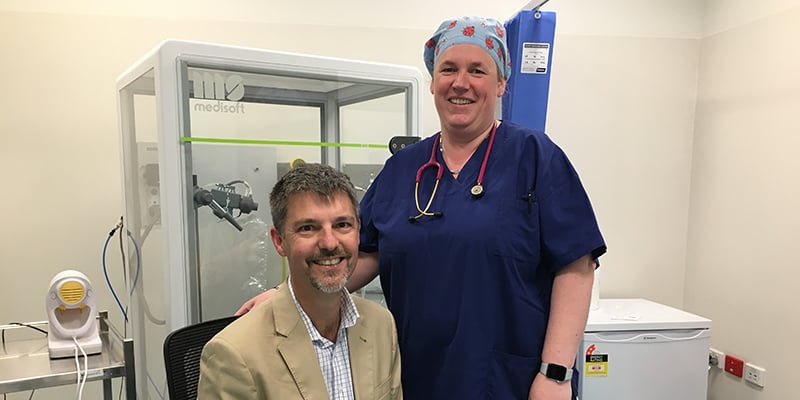Search
Showing results for "clinical trials"
Research
The critical role of the bone marrow stromal microenvironment for the development of drug screening platforms in leukemiaExtensive research over the past 50 years has resulted in significant improvements in survival for patients diagnosed with leukemia. Despite this, a subgroup of patients harboring high-risk genetic alterations still suffer from poor outcomes. There is a desperate need for new treatments to improve survival, yet consistent failure exists in the translation of in vitro drug development to clinical application.
Research
among children with pneumonia using a causal Bayesian networkPneumonia remains a leading cause of hospitalization and death among young children worldwide, and the diagnostic challenge of differentiating bacterial from non-bacterial pneumonia is the main driver of antibiotic use for treating pneumonia in children. Causal Bayesian networks (BNs) serve as powerful tools for this problem as they provide clear maps of probabilistic relationships between variables and produce results in an explainable way by incorporating both domain expert knowledge and numerical data.
Research
‘Feeling like you can't do anything because you don't know where to start’—Parents' Perspectives of Barriers and Facilitators to Accessing Early Detection for Children at Risk of CPEarly detection of cerebral palsy (CP) risk is possible from 12 weeks corrected gestational age (CGA) using standardised assessments; however, up to half of children at risk are not referred early, missing out on early intervention. We investigated the barriers and facilitators to accessing early intervention from the perspective of parents of children who did not receive services by 6 months CGA.

The Kids Research Institute Australia is helping scientists across the globe inch their way towards clinical trials which could, at last, provide relief for children and families dealing with CDKL5.
Biostatistician, Infectious Disease Implementation Research
The Opportunity To be involved with clinical trials that are a part of the Childhood Allergy and Immunology Research (CAIR) Group, run out of the

News & Events
Asthma medication reduces respiratory complications during tonsil surgeryA Perth study has shown that over-the-counter asthma medication before surgery can reduce respiratory complications during and after tonsillectomy surgery.
Research
Containing Coronavirus Disease 19 (ConCorD-19)Chile has been hard hit by COVID-19, at times reporting around 6500 new cases a day, with many of these located in the capital Santiago.
Research
Prevalence of respiratory viruses in community-acquired pneumonia in children: a systematic review and meta-analysisRespiratory viruses are increasingly detected in children with community-acquired pneumonia but prevalence estimates vary substantially. We aimed to systematically review and pool estimates for 22 viruses commonly associated with community-acquired pneumonia.
Research
The AuTOMATIC trial: a study protocol for a multi-arm Bayesian adaptive randomised controlled trial of text messaging to improve childhood immunisation coverageWhile most Australian children are vaccinated, delays in vaccination can put them at risk from preventable infections. Widespread mobile phone ownership in Australia could allow automated short message service (SMS) reminders to be used as a low-cost strategy to effectively 'nudge' parents towards vaccinating their children on time.
